Japanese descendants who work actively in the field in Japan.
High expectations for the resolution of issues in both Japan and Latin America.
By KUBOTA Mari
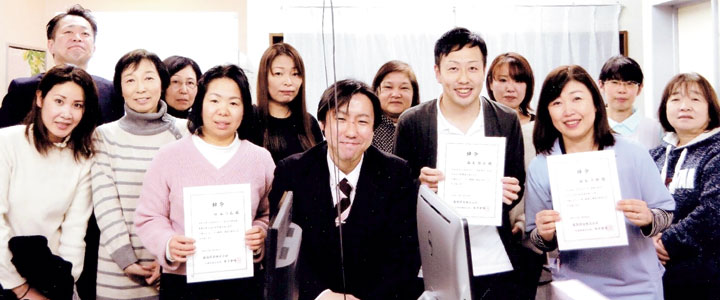
Ms. Maki with colleagues at her workplace.
Supporting the elderly with rapid response even in emergencies
Paraguay Ms. MAKI Mitsuru
For me, being qualified as an assistant nurse in Paraguay, I had feelings for both countries; a longing for Japan, the homeland of my parents, and a desire to learn medical care from developed countries and to make use of it back in Paraguay. Thus, for two years, from April 1988, I participated in practical training through JICA at a hospital in Kanagawa. A year after returning to Paraguay, I worked at a hospital in my hometown, and returned to Shizuoka, where my sister lived in Japan and engaged in some jobs related to manufacturing and beauty. After leaving these jobs, I thought about changing to a job where I could make use of my experience and knowledge, even without a Japanese nursing qualification. Then, while receiving unemployment benefits, I obtained a Helper 1st class qualification, which was useful for the aging society, and finally engaged in nursing care at a Long-term Care Health Facility. After this, I also obtained qualifications as care worker and Long-Term Care Support Specialist.
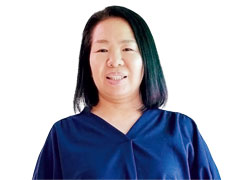
"I am working hard in nursing care, using my experience as a nurse."
From 2007, I started working with a home care support office in Tokyo and made programs for people needing long-term home care. I am responsible for more than 30 people and need to record their support conditions by visiting once a month, so every day is busy. Nursing knowledge and experience help me understand how to care -for the user's symptoms and give them advice. During the Covid-19 crisis, we reduced outpatient services and switched to home-visits, taking appropriate safety measures such as wearing masks, which contributed to reducing the anxiety and infection risk of care-users. I learned a lot from the speedy responses.
When my day-to-day work calms down and I have some room to breathe, I would like to think more about my future.
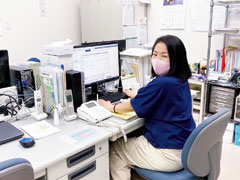
[Current workplace] Ms. Maki working at the home care support office in Tokyo. Every day is busy responding to telephone calls and visiting the home care users.
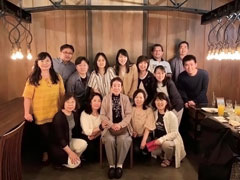
Annual meet-up with friends from JICA training, surrounding the teacher at the time who turned 90 last year.
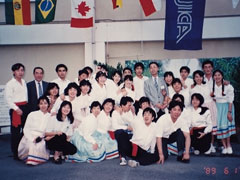
Colleagues from JICA training when participating in practical training at a hospital as a nurse.
Building a bridge between Japan and the Japanese community in Brazil through community activities
Brazil Ms. TSUTSUMI Erika
I came to Japan in 1990 when my mother, who was working in Japan, was hospitalized. I went to nursing school while working at a hospital in Ibaraki prefecture and became an associate nurse, and then entered university and became qualified as a nurse and public health nurse. However, due to age restrictions I couldn't become a public health nurse so I gained experience as a visiting nurse at a general hospital but eventually left because I couldn't give up on my dream. I got a job as a teacher at a vocational school in Tochigi, where I taught home nursing for 9 years. After this I worked at a community-based nursing home and then moved to a related facility which had no age restrictions, and have been working as a public health nurse at a Regional Comprehensive Support Center in Tochigi prefecture since last December. My work involves supporting the independent lifestyles of the elderly, from the perspectives of long-term care, welfare, health, and medical care, etc., and I provide advice on health management and nursing care.
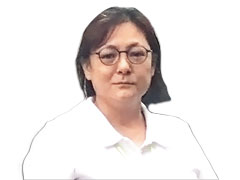
"It is important for the aging society to live healthily in familiar surrounds!"
With the impact of the novel coronavirus, it has no longer been possible to use public facilities for interaction and long-term care prevention exercises, so I have been contacting people and telling them to incorporate these exercises at home and have also been providing guidance on infection prevention measures. After periods of taking care by themselves, there were cases of elderly people whose cognitive and motor functions had declined resulting in a series of consultations with their families, which reaffirmed the importance of interacting with others. We are currently carrying out physical fitness tests and health consultations with the resumption of exercises to grasp the physical conditions of the elderly people. Mexico and Brazil are facing a similar problem to Japan in terms of being aging societies, so it is my hope that I can help in communicating what I have learned in Japan through the webinar* planned by JICA to create Japanese communities where the elderly can live comfortably.
personally was able to fulfill my dream of becoming a public health nurse with the support of a lot of people. About 3,000 Japanese descendants live in the area where I work, and sometimes I'm asked to serve as a medical interpreter or a student admission counselor. I also want to support Japanese descendants that are suffering from language barriers.
*An online seminar, combining the terms "web" with "seminar." A webinar on elderly care is planned for Mexico in February 2021
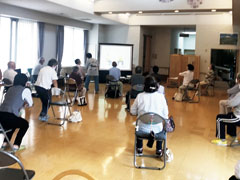
[Current workplace] Nasushiobara city in Tochigi prefecture hosts gym classes to support the independence of the elderly.
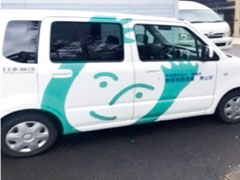
[Current workplace] Ms. Tsutsumi makes individual visits to the elderly in her area to check on their health and living conditions.
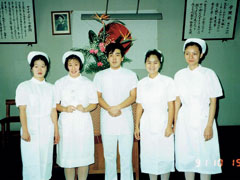
Ms. Tsutsumi studied to become an associate nurse while working at a hospital after coming to Japan.
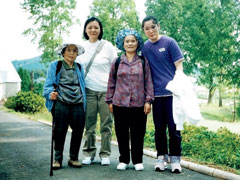
Participating in training taking elderly people out for a college class while training to obtain a qualification as a public health nurse.
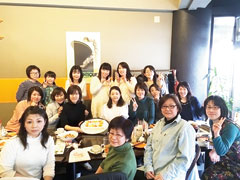
Fellow nursing teachers that trained together meeting to commemorate their first-year anniversary of becoming a teacher.
Training program for Japanese descendant communities (Promotion of multicultural coexistence/NIKKEI cooperation)
The purpose of "Japanese Community Training" is to further develop the Japanese community and contribute to the development of the country that they are moving to. In this training, people that play leading roles in cooperation between the Japanese community in Latin America and Japan learn about specialized fields such as "Japanese language teaching" and "elderly care." From 2020, a new type of training, "Training Program for Japanese Descendant Communities (Promotion of multicultural coexistence /NIKKEI cooperation) will commence which contributes to resolving challenges for the Japanese descendant community in Japan.
There are currently about 240,000 Japanese descendants living in Japan and supporting the Japanese economy, but because of a lack of understanding of the Japanese language they face various difficulties such as dealing with public services such as children going to school and hospitals etc., and also handling the aging population. Therefore, trainees are expected to play a new role as a bridge connecting Japanese descendant communities in Latin America with Japanese descendant communities in Japan, helping to solve these problems while they are engaged in learning as trainees.
JICA Peru Office Mr. ODANI Tomoyuki
Training program for Japanese descendant communities is seen by trainees as an important opportunity for raising a sense of belonging to Japan. Also, by dealing with challenges faced by Japanese descendants living in Japan that are new to training is hoped to lead to further enjoyment for them and those around them.
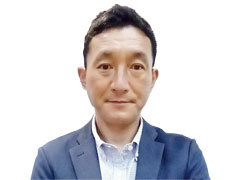
Mr. ODANI Tomoyuki




scroll